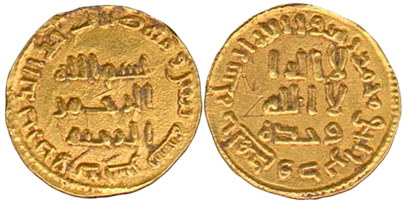Al-Hurr couldn’t manage it, but Al-Samh is ready to take a crack at the Franks and make Septimania his own. Will he succeed? Come hear about censuses, a bridge, and William Henry Harrison in Governor Al-Samh’s episode!
Listen to Al-Samh’s episode on Podbean
Categories
Conquistadores
Al-Samh turns his attention back to the Franks! It’s been a while since we discussed the Franks, hasn’t it! Last time we saw them in our story it was with Dagobert’s grandsons who were ruling when Wamba went to Septimania to confront the rebellious Duke Paul. He thought the Franks were going to come to his aid, but they never did, and then Julian wrote all about how pathetic the Franks are in his History of Wamba, remember? Well, he wasn’t far wrong at this point, because Dagobert’s last grandson, Theuderic III, was the first of the so-called “rois fainéant”, or “do-nothing kings”. You can listen to the Battle Royale episodes on them, they are all very short, but the upshot is that the kings of the Franks at this time really only cared about affairs within the palace, and the mayors of the palace, a position that has become hereditary by now, are the true power behind the throne. And the current mayor of the palace is Charles Martel.
Having kings that do nothing also means that local nobility become much more important, so when al-Samh decides he’s going to make an attempt at Septimania, it’s not the king or even Charles Martel he’ll be fighting against – it’s the Duke of Aquitaine, a man named Odo. And it is he that Al-Samh will face in the first campaigning season he takes part in, in the year 720. It is wildly successful. He storms across the Pyrenees, easily captures Narbonne, and sets up a garrison there. He fortifies what will be his Septimanian headquarters, then returns to Spain to drum up some more troops. He’s set his sights on Toulouse, the historical capital of the Visigoths and the most important city in Septimania.
In the 721 campaigning season, he returns to Narbonne with more forces and siege engines. Then, the whole company marches on Toulouse. Toulouse then calls on Duke Odo for help. Now, Odo is no stranger to getting involved with Spaniards; not three years before this he was raising an army of Basques to take on Charles Martel during an inter-family Frankish dispute. So he knows there are lots of Visigoths in Septimania and he knows the conquerors are Muslims. And he agrees to help Toulouse out. He actually messages Charles Martel to see if he would help out the south, and Charles Martel says nooooooo thank you. So Odo goes it alone.
Three months after the siege began, Odo and his forces show up at Toulouse and completely rout the sieging forces. Thousands of Al-Samh’s men were killed, and Al-Samh himself was critically wounded. The Muslims pulled back to Narbonne, where Al-Samh died. A man named Abd al-Rahman is appointed governor in extremis and leads the rest of the retreat back to Córdoba, but we won’t have an episode on him next, although we will eventually have an episode on him, because he will be officially appointed governor in the future.
Score
Peter: 5
Sarah: 5
Total: 10
No Me Digas
Like our previous governor, we first hear of Al-Samh ibn Malik al-Khawlani when he is named governor of Al-Andalus. However, the Akhbar majmu’a has a story about him that shines some light on why he may have been appointed. Before he is appointed governor of Al-Andalus, Al-Samh is working in the administration of the province of Ifrikiya, and he’s one of the people chosen to bring the revenue from that province to the caliph. The process at the time is that when the money is to be handed over, all 10 of the notables who have transported the money must swear an oath that the treasure represents the complete amount of the collection and that all the settlers in the province have gotten their share as well. On this trip, 8 of the 10 notables took this oath, but Al-Samh and another man, Ismail ibn Abdallah, would not swear to the oath. Umar took these two men aside to question them and discovered that they knew the provincial officials had been skimming off the top of the revenue.
Score
Peter: 2
Sarah: 3
Total: 5
Ortodoxia
He arrives to a peninsula that is in much better shape than the one that his predecessor Al-Hurr found – there is money in the treasury, a system of judges nationwide, and the north of Spain is settled and calm.
However, the new caliph isn’t really interested in Al-Andalus as a territory. He’d stripped Al-Hurr of the governorship due to failures in Septimania, but in truth Umar ibn Abd al-Aziz didn’t really see the point in continuing to hold the Iberian Peninsula at all. According to Ibn al-Qutiyya, “Umar charged al-Samh with evacuating the Muslims who had settled in al-Andalus because he feared for their safety should they be overrun by the enemy.” Umar simply wasn’t in the mold of Abd al-Malik, Al-Walid, or Sulyaman in that he wasn’t interested in conquest for conquest’s sake. The Chronicle of 754 calls him “benign and patient in his rule”, if that tells you anything.
Al-Samh doesn’t take these orders lying down. He assures Umar that Al-Andalus is a worthy territory to keep and that the Muslims’s holdings in the peninsula are safe and secure. To prove it, he decides to undertake a census of the country, detailing the peoples, lands, and value of goods of the Iberian Peninsula. He also finishes up Al-Hurr’s regulating of the treasury by “divid[ing] by lot among his allies the booty, arms, and whatever else in the way of plunder the Arab people in Spain had not yet divided, and added a portion of all the moveable and immoveable goods to the fisc.”
Umar is convinced! Al-Samh’s numbers are good enough that he decides to keep Al-Andalus as part of the caliphate. In fact, he asks Al-Samh “to collect for him the fifth of the spoil taken from those Christian provinces which had not yet acknowledged the authority of Islam”. What this means is Asturias and the Basque country – that strip of land at the very north of Spain, west of the Pyrenees and north of the Picos de Europa. Now, logically, if these places hadn’t eacknowledges the authority of Islam, then what we are talking about is raids for plunder, or extortion. And many scholars believe that it is this action that sets up the first rebellion of the northern Christians, which we will see in our next episode.
Score
Peter: 2
Sarah: 2
Total: 4
El Rey-sto

Ibn al-Qutiyya: Ja ¯ bir took up residence in Cordova [near . . . the] graveyard and prayer hall in the Arrabal suburb. 6 But he received news of Umar ’ s death and stopped collecting the money and built the bridge over the river at Cordova, opposite the garden. 7
Al-Makkari: However, it was he who caused the bridge at Cordova to be rebuilt, after obtaining permission of the Khalif to that effect, as we have related elsewhere.11
The Akhbar majmu’a also shares the bridge story, claiming that the caliph Umar told Al-Samh to repair the bridge with whatever scavenged stone he could find.
Length of Reign: 3.5 years
Children: None known
Death: Of a battle wound
Score
Peter: 5
Sarah: 5
Total: 10
¿Fuero o Fuera?

Sources
Primary
The Chronicle of 754. As translated in Wolf, Kenneth Baxter (1999). Conquerors and Chroniclers of Early Medieval Spain.
The History of the Conquest of Al Andalus, Ibn al-Qutiyya. As translated in James, David (2009). Early Islamic Spain: The History of Ibn Al-Qutiyah
The Collected Accounts. As translated in James, David (2012). A History of Early Al-Andalus: The Akhbar majmu’a.
The History of the Mohammedan Dynasties in Spain, al-Makkari. As translated in de Gayangos, Pascual (1840).
Secondary
Collins, Roger (1989). The Arab Conquest of Spain: 710-797.
O’Callaghan, Joseph F. (1975). A History of Medieval Spain.
Recommendations
China in Disintegration, by James E. Sheridan
A Midwinter’s Tale, directed by Kenneth Branagh